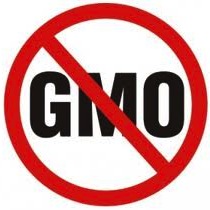 Environmental activists and safe food advocates are up in arms over a decision by the USDA to allow unrestricted planting of genetically engineered alfalfa. It’s not the first crop that’s been genetically engineered by chemical giant Monsanto to allow heavy pesticide use, but it’s perhaps the most threatening so far, with opponents calling it the beginning of genetic pollution of not only crops, but the animals and people who eat them.
Environmental activists and safe food advocates are up in arms over a decision by the USDA to allow unrestricted planting of genetically engineered alfalfa. It’s not the first crop that’s been genetically engineered by chemical giant Monsanto to allow heavy pesticide use, but it’s perhaps the most threatening so far, with opponents calling it the beginning of genetic pollution of not only crops, but the animals and people who eat them.
Listen to this broadcast by WAMC Northeast Public Radio, Albany NY; Susan Barnett talks with Page Tomaselli, a staff attorney with the Center for Food Safety.
Susan Barnett and Page Tomaselli talk about the latest litigation over GMO alfalfa.
You can find out more at truefoodnow.org, organicconsumers.org, and responsibletechnology.org.
__________________________________________________
Other segments in this broadcast include:
Kate Szrom reports on Food Deserts: If you live in a suburb or the country, you take fresh produce for granted. There’s a grocery store nearby and it offers fruits and vegetables that look appetizing and appealing. That’s not the way it is in most US cities. In fact, in the poorest areas, there’s often no grocery store at all. They’re called food deserts and they exist all over the country.
If you want to find out more, just search for food desert you’ll find government links, magazine stories and even links to a Department of Agriculture study that found that 2.3 million households do not have access to a car and live more than a mile from a supermarket
Best Workplaces – Selena Rezvani: What makes a great place to work? Flexibility, certainly. A recognition of the needs of parents, room for advancement, openness to ideas as well. According to Selena Rezvani, the common denominator in the best places to work is usually women.
Selena Rezvani is an author and speaker – find out more at nextgenwomen.com.
